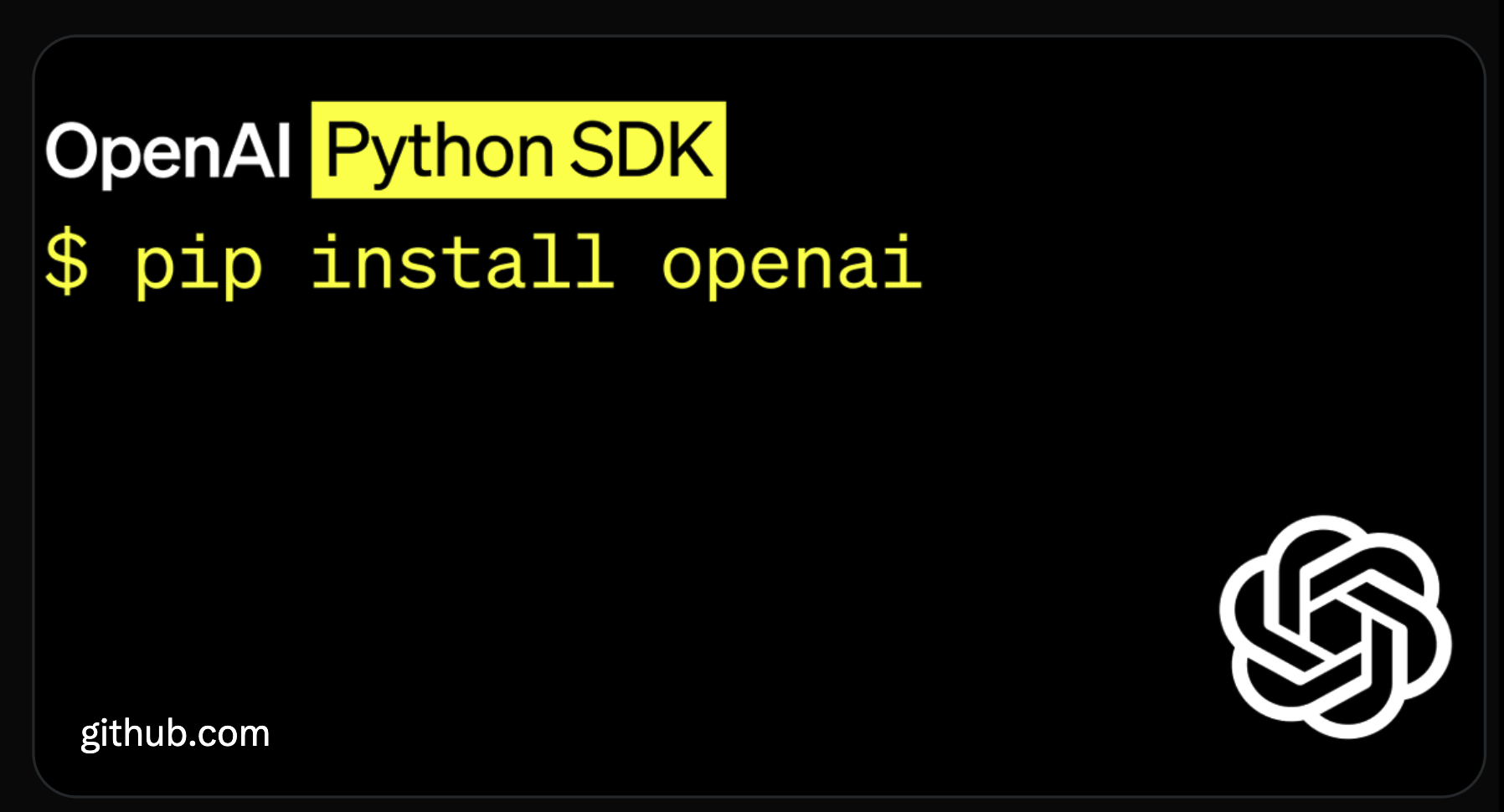OpenAI has unveiled the Beta version of its Python SDK, marking a significant step towards enhancing access to the OpenAI API for Python developers. The OpenAI Python library offers a simplified way for Python-based applications to interact with the OpenAI API, while providing an opportunity for early testing and feedback before the official launch of version 1.0.
Check out the GitHub repository.
It streamlines the integration process by providing pre-defined classes for API resources, dynamically initialising from API responses, ensuring compatibility across various OpenAI API versions.
This Beta release is essential to give users a preview of the upcoming major update, version 1.0, which will introduce significant changes. OpenAI encourages developers to explore the Beta version and share their valuable feedback to help shape the final release.
To use the library, developers must configure it with their private OpenAI API key, which can be obtained from the OpenAI developer platform. This can be done either by setting the ‘OPENAI_API_KEY’ environment variable or directly within the code using ‘openai.api_key’.
The OpenAI Python library facilitates various tasks, including:
Chat Completions: For chat models like gpt-3.5-turbo and gpt-4.
Completions: For text models such as babbage-002 and davinci-002.
Embeddings: To measure text similarity or relevance.
Fine-tuning: To train models on specific data.
Moderation: To check content compliance with OpenAI policies.
Image Generation (DALL·E): For generating images based on prompts.
Audio (Whisper): For speech-to-text functionality.
The Beta release also includes support for optional dependencies, such as Weights & Biases and data libraries like numpy and pandas.
Developers can find comprehensive documentation and code examples in the OpenAI Cookbook for various tasks, including classification, clustering, code search, customising embeddings, question answering, recommendations, visualisation of embeddings, and more.
The OpenAI Python SDK Beta version introduces significant improvements, including automatic error retry with backoff, proper type definitions for enhanced code clarity, and the ability to instantiate a client for more flexible usage.
This comes just weeks before OpenAI’s first developer conference, OpenAI DevDay.
The post OpenAI to Release Its Python SDK appeared first on Analytics India Magazine.



![[CITYPNG.COM]White Google Play PlayStore Logo – 1500×1500](https://startupnews.fyi/wp-content/uploads/2025/08/CITYPNG.COMWhite-Google-Play-PlayStore-Logo-1500x1500-1-630x630.png)